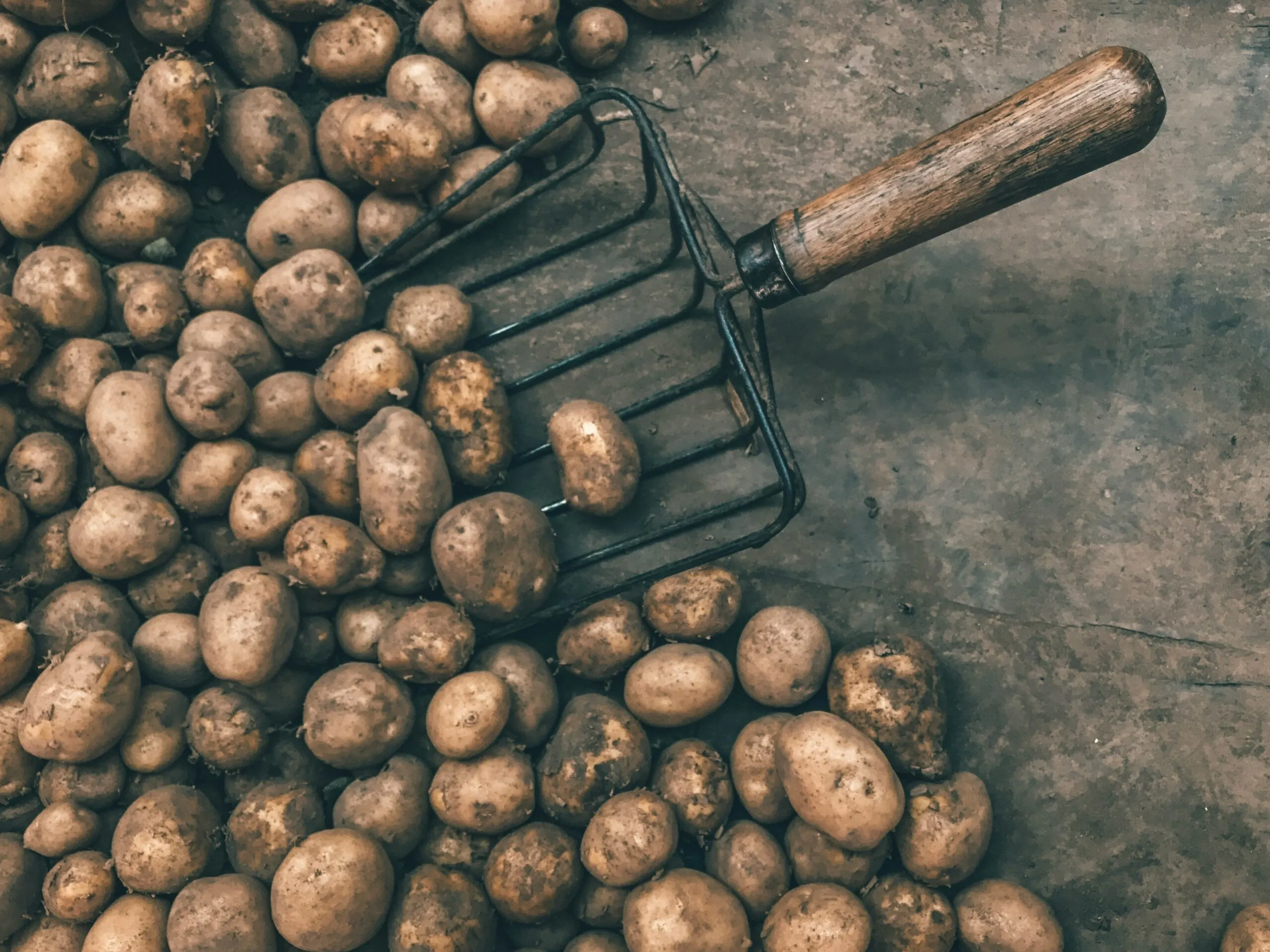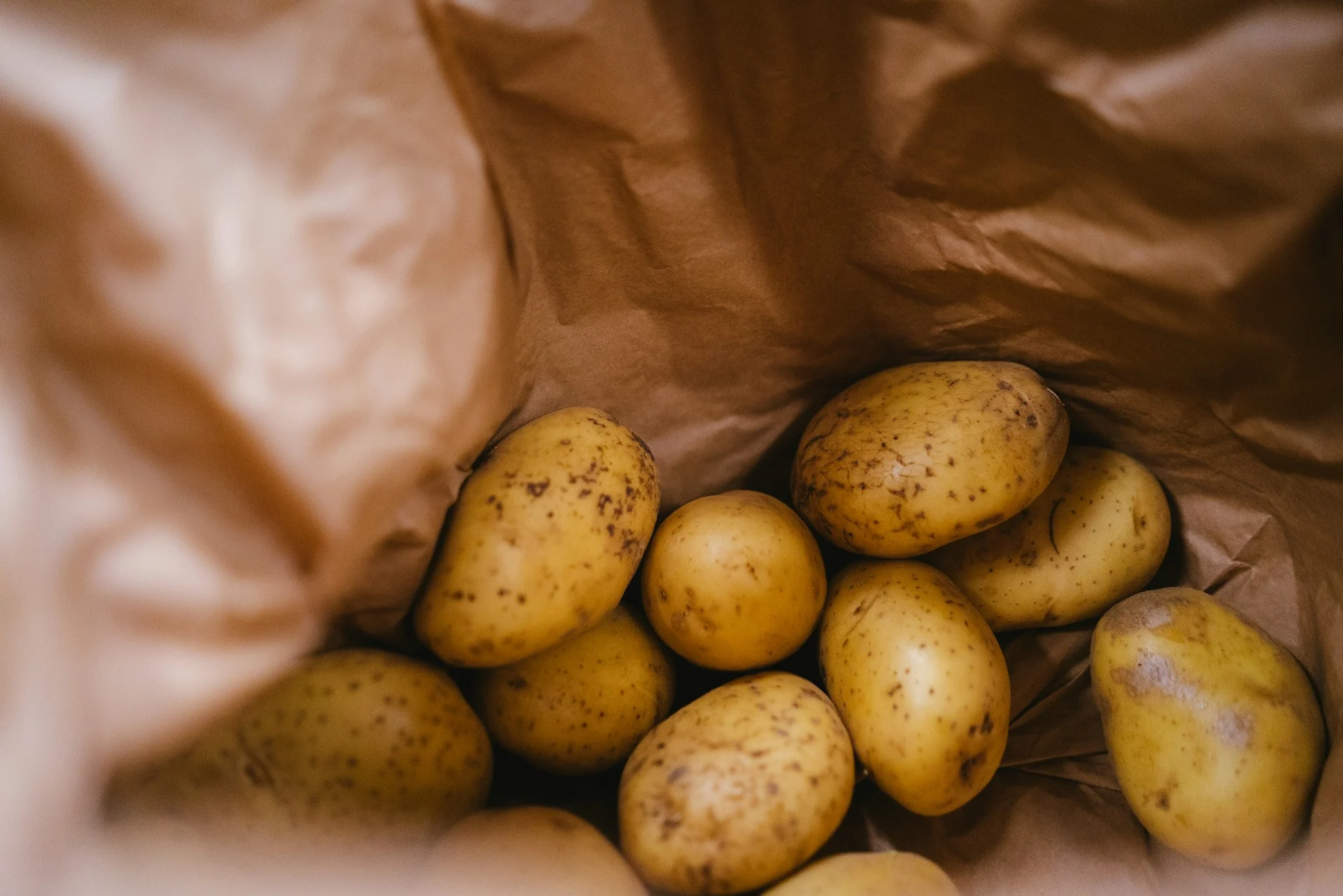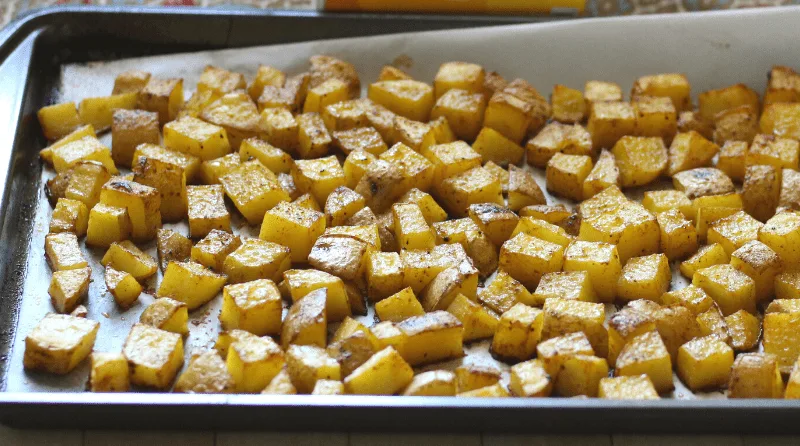Properly storing potatoes can extend their freshness, so you always have this versatile ingredient on hand. Learning how to store potatoes isn't just about maintaining their freshness; it's about keeping their texture and flavor for weeks or even months.

Photo by Jan Antonin Kolar
Because let's face it, improperly stored potatoes can become a nightmare — sprouting, shrinking or even worse, succumbing to rot. So, discover the secrets of potato preservation and never again experience the panic of a last-minute dash to the store mid-cooking.
Check out these toppings for a baked potato bar.
How long can potatoes last?
When stored properly, uncooked potatoes can last anywhere from three to five weeks in the pantry and three to four months in a cool, dark place. This makes them an ideal vegetable to buy in bulk for meal planning on a budget.
Creating the ideal environment
To store potatoes, you must balance humidity, temperature, airflow and light exposure. You must also ensure the potatoes are not too near other produce.
Humidity levels
Potatoes prefer a high-humidity environment, ideally between 80% to 90%. To achieve this, you can store them in perforated plastic bags or a root cellar where natural humidity is often higher.
Temperature
Store your potatoes at a cool temperature, ranging from 45 F to 50 F. But don't store them in the refrigerator since lower temperatures can convert the starch in potatoes to sugar, which changes their taste and cooking properties.
Airflow
Good ventilation is crucial since excess moisture can lead to spoilage. Ensure your storage area allows air to circulate around the potatoes, such as slatted crates, perforated bags or baskets.
Light exposure
Potatoes should be kept in the dark since light can cause them to turn green and produce a toxin called solanine. Use paper bags, burlap or a closed box to shield them from light or store them inside a closed cabinet. Check periodically to remove any potatoes that have started to turn green.
Keep potatoes separate
Potatoes should be stored away from other produce that can accelerate spoilage. Many fruits and vegetables emit ethylene gas as they ripen, which can cause potatoes to start sprouting.
Some of the most common ethylene gas troublemakers are onions, apples, bananas and tomatoes. Instead, store potatoes near other root vegetables, like sweet potatoes, that have similar storage needs.
“Keep potatoes away from your onions. Potatoes and onions do not get along. The gases that onions exude cause potatoes to sprout faster, so they will go bad more quickly than you’d like.”
— Michelle Price, Honest and Truly

Photo by Phil Hearing
How to store potatoes at home
The right storage can significantly extend the shelf life of your potatoes. Here are some of the most common choices, along with advantages and disadvantages. Choose a method that best fits your needs and space.
- In a bowl: Place your potatoes in a dry, well-ventilated bowl. Keep the bowl dark so the potatoes are not exposed to sunlight.
- In a basket: A basket allows for good airflow, which prevents moisture build-up and spoilage. Keep it in a cool, dark and dry area of your home.
- In the original packaging: If your potatoes came in a perforated plastic bag, you can keep them in their original packaging to balance humidity and avoid sprouting.
- In a paper bag: A paper bag is ideal for maintaining dry conditions. Fold the top of the bag over to protect the potatoes from light.
- In a mesh bag: A mesh bag is a great alternative that provides excellent ventilation.
- In a box: A cardboard box can be suitable if kept in a cool and dark place, such as a basement. Ensure the box is open or has holes for adequate air circulation.
- In the refrigerator: Storing potatoes in the refrigerator is not recommended, as cold temperatures can turn the starch into sugar and alter the taste. If you must refrigerate, use them quickly.
Check your potatoes
When storing potatoes, it's not just enough to create a good environment. Regular inspection and proper separation are necessary, too.
Check your potatoes regularly to make sure they are in good condition. Remove any potatoes that are sprouting, soft or showing signs of decay so these issues don’t spread to the rest. Check your potatoes about once a week for the best results.
How to store potatoes for longer times
A first-in, first-out approach is essential when storing potatoes for long periods. So, organize your potatoes in a way that allows you to access the oldest ones first easily. If you are holding many potatoes, label them with the storage date.
“After harvesting 80 to 100 pounds of potatoes each season, we store them in banana boxes on shelves in a cold, dark section of our garage. It's important to dig up the potatoes while the soil is dry so that they can be put away dry. They should not be washed before storing. They will last eight to 10 months here before they start going to seed.”
— Dan Morris, Fire and Saw
Troubleshooting common issues
The most common potato issues are sprouting, shriveling and discoloration. Promptly addressing these issues can help maintain the quality of your potatoes.
- Sprouting occurs when potatoes are exposed to light. If sprouts develop, remove them and use the potatoes promptly.
- Shriveling happens due to moisture loss. Keep your potatoes plump in a high-humidity environment and avoid direct sunlight. If your potatoes begin to shrivel, consider using them in recipes that require less visual appeal but are flavor-focused, like mashed potatoes.
- Potato discoloration can occur due to exposure to light or temperature changes. To keep potatoes from changing color, keep them stored at a constant temperature and away from light. If discoloration is slight and the potatoes are firm, they are still usable. However, you should throw away potatoes if the discoloration is accompanied by a rotten smell or a mushy texture.
Selecting the right potatoes
Selecting high-quality potatoes ensures they will last longer. Pay attention to the potato variety and freshness when you buy them. When picking potatoes, these are the most important factors to consider.
- Skin Integrity: Choose potatoes with firm, unblemished skins. Avoid those with cuts or soft spots.
- Eye Count: Buy potatoes with fewer eyes. Numerous or sprouted eyes indicate old potatoes.
- Firmness: They should be firm to the touch. Soft, yielding potatoes are past their prime.
Summing up
You can avoid sprouting, shrinking or rotting potatoes by understanding how to store potatoes. Maintaining the proper humidity, temperature, airflow and darkness is crucial. Ensure your potatoes are stored separately from ethylene gas-emitting fruits and vegetables.
Whether you choose a basket, mesh bag or cardboard box, select a method that suits your space and needs. With proper storage, you can confidently enjoy your potatoes for weeks or even months so that you can create delicious potato dishes, like taco potatoes, twice baked potatoes roasted potatoes.

Anne Jolly is the creator of the food blog Upstate Ramblings. She loves to cook with gadgets like an air fryer, sous vide or pressure cooker. In her free time, she enjoys hiking, reading, knitting and spending time with her three kids.
This article originally appeared on Food Drink Life.
